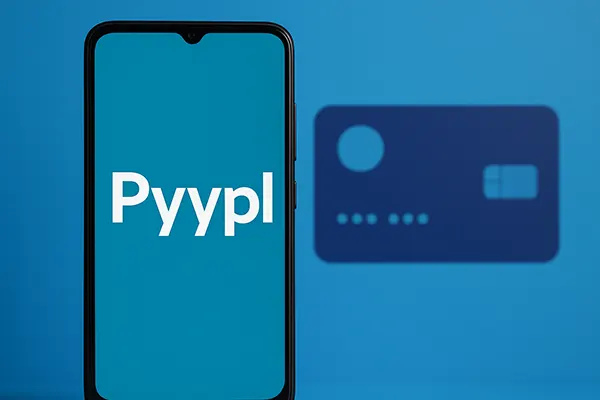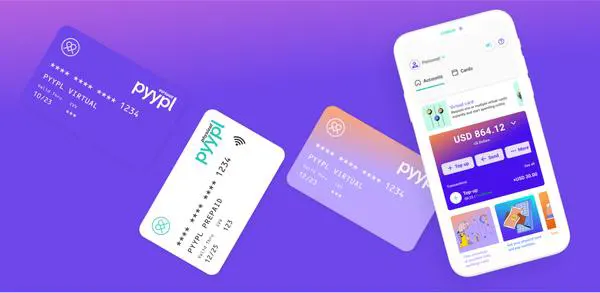
Pyypl: Cardless Payment Solution for Players from the Middle East and Africa
In the growing world of digital payments, players from the Middle East and Africa are often left out due to limited access to traditional banking systems. Pyypl emerges as a relevant and reliable payment solution that eliminates the need for bank cards. With a focus on accessibility, speed, and security, it helps users manage and use their funds freely and without complications. As of February 2025, Pyypl continues to grow its footprint across regions where financial infrastructure remains underdeveloped, filling a vital gap in the payment ecosystem.
What is Pyypl and How Does It Work?
Pyypl (pronounced “people”) is a financial technology service that allows users to make online payments, send and receive money, and manage their finances without requiring a traditional bank account or card. The service is app-based and functions through a virtual prepaid Mastercard, which can be topped up via local payment methods or bank transfers, where available.
Once registered, users can instantly access a digital card for online purchases or link it to services that require card authentication. It’s ideal for those in regions with limited card issuance or access to global payment systems. Moreover, the app interface is designed to be multilingual and user-friendly, ensuring that it caters to a broad demographic.
In 2025, Pyypl continues expanding across the Gulf Cooperation Council (GCC) countries and several African nations, including Kenya, Nigeria, and South Africa. Its accessibility appeals to freelancers, expatriates, and individuals in informal economies who need flexible financial solutions without rigid bank procedures.
Security and Regulatory Compliance
Pyypl is regulated by the Financial Services Regulatory Authority (FSRA) in Abu Dhabi Global Market (ADGM), one of the most stringent financial hubs in the region. This guarantees the service complies with international standards on anti-money laundering, data protection, and financial transparency.
In addition to regulatory compliance, the app integrates multiple layers of security, such as biometric login, two-factor authentication (2FA), and real-time transaction alerts. These tools ensure users’ funds and data are well protected, which is critical in regions where online fraud is an increasing concern.
The app also supports Mastercard SecureCode for additional online purchase protection. Users can manage transaction limits and immediately freeze their card in case of suspicious activity, empowering them with full control over their finances.
Advantages for Gamblers in the Middle East and Africa
Pyypl offers significant benefits for individuals who wish to make deposits or purchases on entertainment and gaming sites without revealing their banking details. Since it operates independently of a bank account, users retain privacy and flexibility. This is particularly beneficial in regions where gambling-related transactions are closely monitored or restricted by banks.
Because Pyypl operates with a virtual card system, deposits can be processed faster and more reliably than with conventional banking systems. This is essential for players who want to manage their bankrolls efficiently and avoid delays due to bank clearance or card verification errors.
Moreover, the availability of local top-up options, including mobile money and local bank transfers, simplifies the funding process for users in countries with limited international financial access. This positions Pyypl as an inclusive and adaptable solution in markets often neglected by mainstream fintech services.
Flexibility and Accessibility
Unlike traditional financial institutions, Pyypl requires no minimum income, credit history, or extensive documentation. This makes it especially useful for younger users, gig workers, and freelancers, who may not qualify for standard banking services.
The app can be downloaded from app stores across the Middle East and Africa and is compatible with Android and iOS devices. The registration process is quick, with identity verification performed digitally through secure channels.
The ability to send funds to other users or withdraw to third-party services like mobile wallets adds to its versatility. As of 2025, Pyypl also integrates QR payments in select regions, allowing users to transact at physical merchants with ease.

Limitations and Considerations
While Pyypl solves many accessibility issues, there are limitations to its current model. For example, in certain countries, the app may not yet support withdrawals to local bank accounts or mobile wallets. Additionally, some international merchants may not accept virtual cards for security reasons.
There may also be restrictions on maximum account balance and transaction volume, especially for users who haven’t completed enhanced verification procedures. Users must stay informed about fee structures, including top-up fees, currency conversion charges, and inactivity fees.
Customer support, although responsive, is primarily online, which may present challenges for users in remote areas with limited internet access. It’s advisable for users to review their local regulations and Pyypl’s terms to understand all capabilities and limitations.
Future Developments and Expansion
As of early 2025, Pyypl is actively developing partnerships with telecom operators, remittance services, and regional e-commerce providers. These partnerships aim to improve top-up accessibility, cross-border payments, and merchant integration.
Planned expansion includes entering new African markets such as Uganda and Ghana, and further growth in North Africa and Central Asia. This will help more people transition into digital financial ecosystems, bypassing traditional barriers.
The team behind Pyypl is also working on adding crypto top-ups and blockchain-based remittance tools to increase its appeal to tech-savvy users. With financial inclusion at its core, the service continues evolving to meet the specific needs of underbanked populations.
